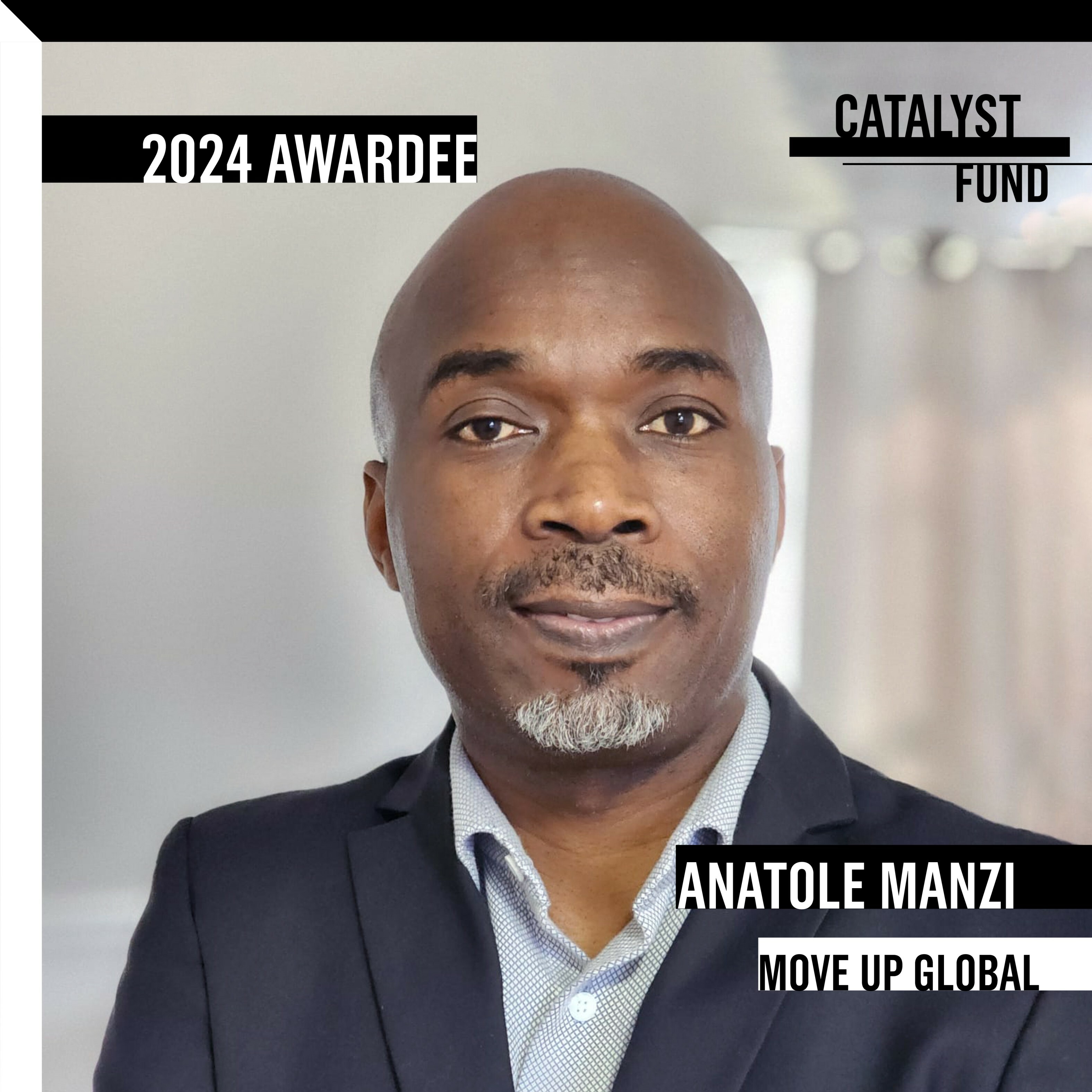Move Up Global: Community-Defined Solutions to Malnutrition and Tropical Diseases in Rwanda
2024 Catalyst Fund Awardee
Anatole Manzi
Venture
Move Up GlobalProgram
Catalyst FundLocation
Rwanda
Year
2024Anatole Manzi is no stranger to the effects of malnutrition. Growing up in Rwanda, he recounts abdominal pain that, at a young age, he considered insurmountable. The pain was caused by intestinal worm infection and often rendered Anatole immobile, forcing him to lay on the side of the road and miss many days of school. His experience is not dissimilar to 40% of children in Rwanda, and 149 million children under 5 globally. Malnutrition has a long-term impact on developmental and cognitive impairment and regularly results in poor school performance and quality of life. With only one doctor per 10,000 people in Rwanda, community-based solutions to counter the effects of malnutrition are imperative. Teachers, Anatole believes, are the key.
Teachers are best positioned to know which children are sick, but they are not connected to the health system. Community health workers are not linked to schools. Together, they can treat malnutrition.
In Rwanda, he realized there was a disconnect between schools and health systems that prevented the improvement of health and educational outcomes. While continuing his role as the Deputy Chief Medical Officer at Partners in Health, Anatole returned to Rwanda to start Move Up Global to improve the quality and accessibility of health and education in remote and resource-constrained communities. The model is unique in its focus on community engagement in the design and implementation of innovative solutions to address persistent gaps in people’s health and well-being. Move Up Global lifts up teachers, parents, and students as the decision-makers in their own lives. It strives “not to do for people, but to teach people to do for themselves.”
Before Move Up Global, there was a dearth of community health workers within public schools in the Musanze district, the most mountainous region in the country. Intestinal parasites plague 40% of school aged children in the district, even though this is preventable through clean water, sanitation, and treatment that costs less than $1 per child. Teachers are often the first to spot changes in students and identify these cases of neglected tropical diseases. Move Up Global leverages this and involves teachers directly. The Knot Ipfundo program deploys community health workers to engage students and teachers to develop health plans and educate school and community leaders as well as students about health competencies. Students participate in classroom-based sessions that enable them to detect risk factors, decreasing absenteeism and improving learning significantly. Community task forces take an active role in tracking health data and using it to improve and adapt interventions.
75%
reduction of malnutrition in the school population served
80%
reduction in children with intestinal work infections and other neglected diseases
90%
reduction of school absenteeism due to food insecurity and diseases
The venture recognizes health, socioeconomic status, education, and technological access as intersectional issues, and works with families to develop self-efficacy in each. Umwete Incubators combat food insecurity and act as school or family owned-farms to teach communities how to grow their own food. This initiative is scalable, with the goal to create new income for community members. Move Up also brings technical skills to the classroom through IT and zoom training, a teach-the-teacher English conversation model, and school resource drives. The venture drives long-term community partnerships, enhances community health and leadership potential, and seeks to professionalize community health measures through the development of a center of excellence in community health and social entrepreneurship to guide communities and inform national policies.
95%
increase in health literacy around nutrition and disease prevention
60%
increase in students' pass rate on the national learning exam
500
families participate in community learning hubs

The 1994 Rwanda Genocide inspired Anatole’s career in medicine: first as a nurse, and later as a clinical psychologist and public health expert. He now serves as Deputy Chief Medical Officer and Director of Clinical Quality and Health Systems at Partners In Health and founded Move Up Global to improve access to health and education in remote and resource-constrained communities through community engagement and intervention.